
It's December. Oscar bait is hitting theaters. As per usual, a lot of them, pack an aggressively unsubtle political punch. The left is arguing about Richard Jewell ( it demonizes journalism and trades in one of the most odious cliches possible, the female reporter who fucks her way to a story) while the right kicks around Bombshell ( Trump did not literally poison Megyn Kelly). Audiences, however, don't seem to want any part of either, not when there's a new Jumanji movie around. It's...well, it's the way things have been trending for a while now.
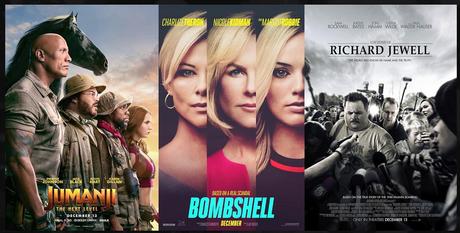
To a certain, much larger portion of the population, movies are just movies, fun little excuses to pass the time and escape into welcome distraction. To others, they are a passion, a way of life, works of art to consume, admire, and celebrate. To a smaller, but incredibly social-media-savvy part of the population, however, movies are culture war proxies, totems to either get behind or crucify since every inch of life must be politicized and converted into virtue-signaling.
For artists in such an age, how do you comment on what's happening in a way people are willing to hear? Increasingly, creative types are turning to metaphor and genre to make their point, trojan horsing their message into larger-than-life or even supernatural stories that only appear to be mere works of entertainment. Judged by box office, that approach has clearly won the day.
But we're in December now. This is the home stretch of Oscars season, a time when Hollywood firehouses out its last batch of big important films, many of them history-based parables about the wrongs in our recent past. Last year, that meant Vice, On the Basis of Sex, and Green Book. The year before that, I,Tonya, The Post, and All the Money in the World. This year, it's Richard Jewell and Bombshell. All of them attempt to contextualize the past as commentary on the present. Several of them contain several glaring historical inaccuracies or oversimplifications, often in ways that betray the director's true political agenda. In the case of Jewell and Bombshell, the cultural criticism machine is spinning each film as misguided missives from opposite sides of the political aisle.
The Case Against Richard Jewell
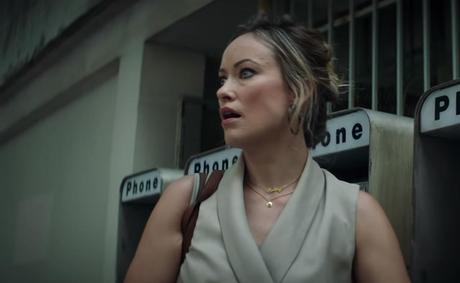
Jewell is the talking-to-empty-chairs capital C conservative version of Clint Eastwood bending history to piss all over the FBI and media at a time when each institution could not be more under attack. As luck would have it for Eastwood's purposes, the media and FBI really did royally screw over Richard Jewell, fingering him as the lead suspect in the 1996 Olympics bombing in Atlanta, GA even though the facts didn't support their conclusion. As with the Tonya Harding and O.J. Simpson cases before him, Jewell became a sensationalized figure at the dawn of the 24-hour news explosion, but to make this point Eastwood does what these kinds of movies usually do: he oversimplifies everything.
Most specifically, Richard Jewell ruthlessly scapegaots one female journalist, Kathy Scruggs (played with scenery-chewing abandon by Oliva Wilde), who is no longer around to defend herself. With the assistance of screenwriter Billy Ray ( Captain Phillips, Terminator: Dark Fate, Gemini Man) and a slew of A-listers won over by the chance to work with a legend, Grandpa Eastwood is wagging his finger at irresponsible reporting while practicing some irresponsible reporting of his own.
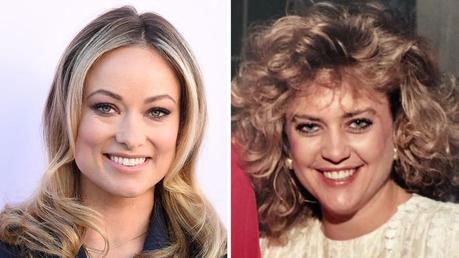
It's worse than just trading sex for the scroop, though. Richard Jewell paints Scruggs as unethical, undisciplined, nakedly ambitious (she's said to be planning on a future in TV), disdainful of any story that doesn't get her on the front page, and openly sarcastic about the intellect of all those happy tourists who dance the Macarena at a concert she's covering. Heck, the film even argues she isn't a good writer, more adept at using her guile to work sources and gain intel which she spits out on the page only to be rewritten by a more talented male colleague. Not helping is Wilde playing all of this at an 11. It's enough to make you want to ask the screenwriter, "What's her name? Which human hurt you?"
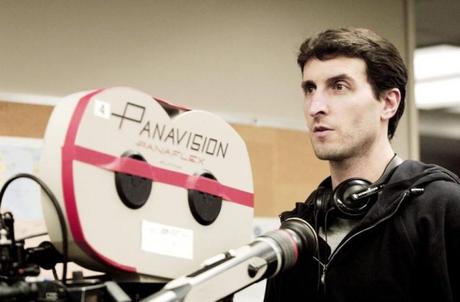
In a Trumpian movie, Ray has doubled down on everything, saying, "The movie isn't about Kathy Scruggs. It's about the heroism and hounding of Richard Jewell, and what rushed reporting can do to an innocent man. And by the way, I will stand by every word and assertion in the script." Eastwood's got his back, stating, "We know as much as anybody knows. Kathy Scruggs was a very interesting personality, and she did find the answer to it, so how she did it, nobody will ever really know. It could have certainly happened this way."
Not surprisingly, according to those who knew her the real Scruggs was a figure of certain extremes, sure, but was not the comically over-the-top ambition monster depicted in the film.
The Case Against Bombshell
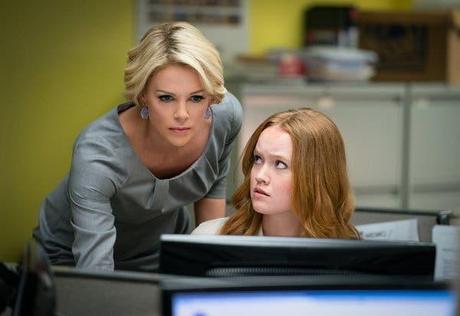
Bombshell is Jay Roach's #MeToo story of the women who took down Roger Ailes, but it implies Team Trump poisoned Megyn Kelly before one of the debates, pulling the story of the illness from Kelly's own book but adding the "poisoned by Trump" part out of nowhere. It's likely a basic storytelling attempt to lend more sympathy to the protagonist. The same logic might explain why the film also creates an entirely fictional character played by Kate McKinnon who is a liberal-leaning lesbian working for Bill O'Reilly in the hopes of trying to change things from the inside - it's an effort to soften Fox News, hopefull getting away from the film's anti-Fox News stance seeming quite so monolithic. (This has to at least sell some tickets in central America, after all.)
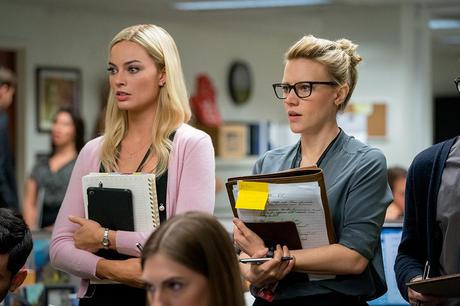
The clear agenda behind both ultimately lessens their overall impact. Of course, neither film is a documentary, and when it comes to history-based films Hollywood's approach has been fairly consistent for over a century now: when the legend becomes fact, adapt the legend. That quote comes from John Ford, but when so many legends these days end up fed into ruthless news cycles and turned into confusing white noise for those people who just want to be entertained it's no wonder that some of the best social commentary is happening in genre storytelling these days, not Oscar bait history movies.
The movies people actually see or TV shows they watch
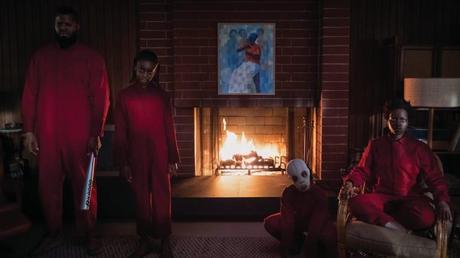
Jordan Peele has his social thrillers ( Get Out, Us). Del Toro has his dark fairy tales ( The Shape of Water). Damon Lindelof is currently using a blank check from HBO to turn the comic book genre inside out and speak to the state of race relations in America ( Watchmen). While Disney has been focusing on Disney+, it's allowed a couple of surprisingly socially charged blockbusters to sneak through, with Dumbo, Maleficent: Mistress of Evil and even Frozen 2 offering rather pointed commentary amidst stories of flying elephants, warring faeries and humans and Elsa's search for answers. Knives Out touches on 1% vs. 99% class divide and directly addresses the plight of immigrants in today's America, all in the body of a fun whodunnit.
How many people objected? Some, but not as many and nowhere near as loudly as Richard Jewell haters.
While it is admittedly a big stretch to characterize a costumed period piece as genre piece - mostly because "genre" is now shorthand for sci-fi/horror/anything not drama or comedy - Greta Gerwig's upcoming Little Women is also emblematic of the direction of things.
Let Greta Gerwig Lead the Way
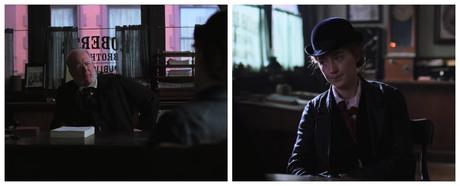
In Louisa May Alcott's beloved Little Wome n, Jo tries to sell her book to a cigar-chomping businessman called Mr. Dashwood. At his direction, she edits and rewrites portions of the story to make it more commercially viable, a hardly ideal process but exactly the kind of concession you make when you're powerless and find yourself slave to the whims of someone with power. In one of these meetings, Jo explains that in her latest draft she did her best to ensure the story still possessed some kind of moral. Dashwood is having none of that.
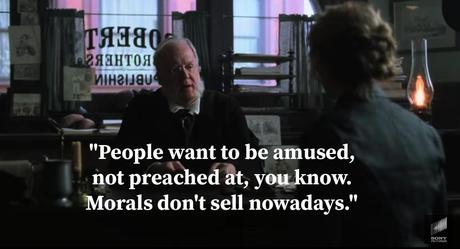
It is very easy to read this as a direct reflection of Alcott's own experiences with publishing, since of the four titular Little Women Jo is the one most like her. Greta Gerwig - the writer/director/actress responsible for Sony's upcoming Little Women adaptation - similarly identified with Jo when she read the book, first as a teenager and then again once she'd passed 30. It was that second reading, however, which truly convinced Gerwig she needed to be the one to make the new Little Women. Looking at the text as an adult revealed all sorts of timeless observations she didn't fully appreciate when she was younger.
For example, the above exchange between Jo and Mr. Dashwood practically screamed at Greta when she read it from the point of view of someone with over a decade of experience in the film industry. She has known more than a few Mr. Dashwoods in her time. In fact, somewhat ironically, Sony Pictures Chairman Tom Rothman became a bit of a Dashwood, clashing with Gerwig over budget and story choices during the making of Little Women. (The finished film, she says, is exactly what she wanted it to be.)
Unlike Jo, however, Gerwig isn't starting out. With a slew of awards and nominations for Lady Bird, which became the highest-grossing film in the history of its distributor, A24, if Gerwig wanted to make a film about contemporary women looking back on their youth with fondness and regret she could have. If Netflix can fund Marriage Story for Noah Baumbach, Gerwig's longtime boyfriend, it surely would have thrown money her way if she wanted to write and direct something like a new Frances Ha or Mistress America.

She could have invented her own Jo or Mr. Dashwood. Instead, she insisted on making Little Women, both due to her passion for the material and because it was a logical next step up the career ladder. If she is ever to truly grow from her mumblecore beginnings, she needs to work with bigger budgets and that means picking material with wider appeal while also doing her best to make sure the finished product has a moral. She can make a costume drama that is both entertaining on its own and entirely about today without having to fabricate history in the process. Sony is gambling on her and Little Women, hoping it will turn into a Christmas blockbuster.
The box office
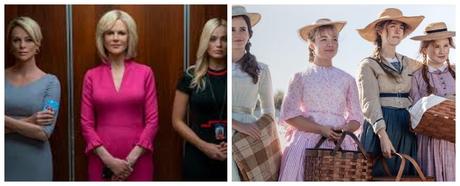
According to most box office projections, Little Women at least has a better shot at making that happen than either Bombshell or Richard Jewell, which are both expected to struggle. Of course, whatever financial failure or success happens will ultimately factor into the narratives built up around each film:
Greta Gerwig revisited a beloved fictional source material and found in it a message she responded to and felt other people would as well, not just the art vs. commerce section with Jo and Dashwood but also the larger story of what societal expectations does to women. Jay Roach, master of the breezy, famous people playing famous people HBO Original Movie, felt a need to contextualize a #MeToo case from just three years ago as an Oscar contender. Grandpa Eastwood, who is pushing 90 these days, found in Richard Jewell the perfect capper to his recent trilogy of odes to American individualism, following Sully and The Mule's lead in mocking the federal government and saluting the hero by wildly exaggerating the actual history. (Sully and Jewell are each ultimately about understandable investigations that got sensationalized in the press.)
Watching all the Richard Jewell takes roll in from all over the internet, including Olivia Wilde's lawyer-speak Twitter thread defending her decision to take part in the film, I've been hung up on the following thought: all of this over a movie virtually no one is going to see. Indeed, Richard Jewell just posted one of the worst nationwide opening weekends of Eastwood's career. Granted, the box office rules around Christmas always differ. We do have recent precedent for films with modest mid-December openings turning into long-legged hits ( Greatest Showman, Eastwood's The Mule.) Jewell could attract a larger audience in the coming weeks, meaning the historical record must be corrected for the benefit of all those normos about to walk into a film which makes a complete mockery of Kathy Scruggs.
Don't do they all do this?
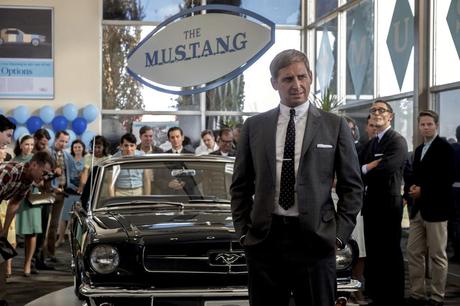
It is awful, so awful that Scruggs' former employer is suing Warner Bros. for defamation, but it's also entirely the kind of oversimplified good vs. evil storytelling Hollywood's history-based movies do all the time. You don't even have to look far.
Just last month,for example, Ford v Ferrari did something similar to Leo Beebe (Josh Lucas), a real Ford executive who played a part in the motor company's entry into the racing circuit in the 60s. That part - if you go by the film - is that he constantly stood in the way of Carroll Shelby (Matt Damon) and Ken Miles' (Christian Bale) genius and eventually found a way to screw them, all because hot-headed Miles insulted Beebe to his face without realizing who he was talking to. That bears little resemblance to the real Leo Beebe or even the real Ken Miles, but the film needed a villain and easy-to-digest conflict. So, voila, we get a version of an incredibly punchable version of Leo Beebe.
That's just what these kinds of movies do. It's part of the equation we accept when we walk through the door whenever a movie comes with the disclaimer "based on a true story." Richard Jewell' s sins seem especially egregious because it trades in sexist tropes and completely undercuts the film's message, willing to create fiction because that makes for a better story while also trying to shame the media for latching onto what seemed like the easier route. We then argue about these things because there's enough historical rope left for these films to hang themselves with.
But, man, Little Women looks really good. I'm currently digging The Expanse's commentary on the way we, as a people, always end up fighting over resources. I keep thinking about Captain America: Civil War and how it was trying to talk about polarization years before any of us recognized how much of a threat it is. And sometimes I just really want to watch The Rock do his impression of Danny DeVito in a Jumanji movie. It doesn't pack any kind of metaphorical or allegorical meaning; it's just really funny. Movies can do that, too.
Sources: All the background info about Gerwig and Little Women comes from her interview on KCRW's The Business.

